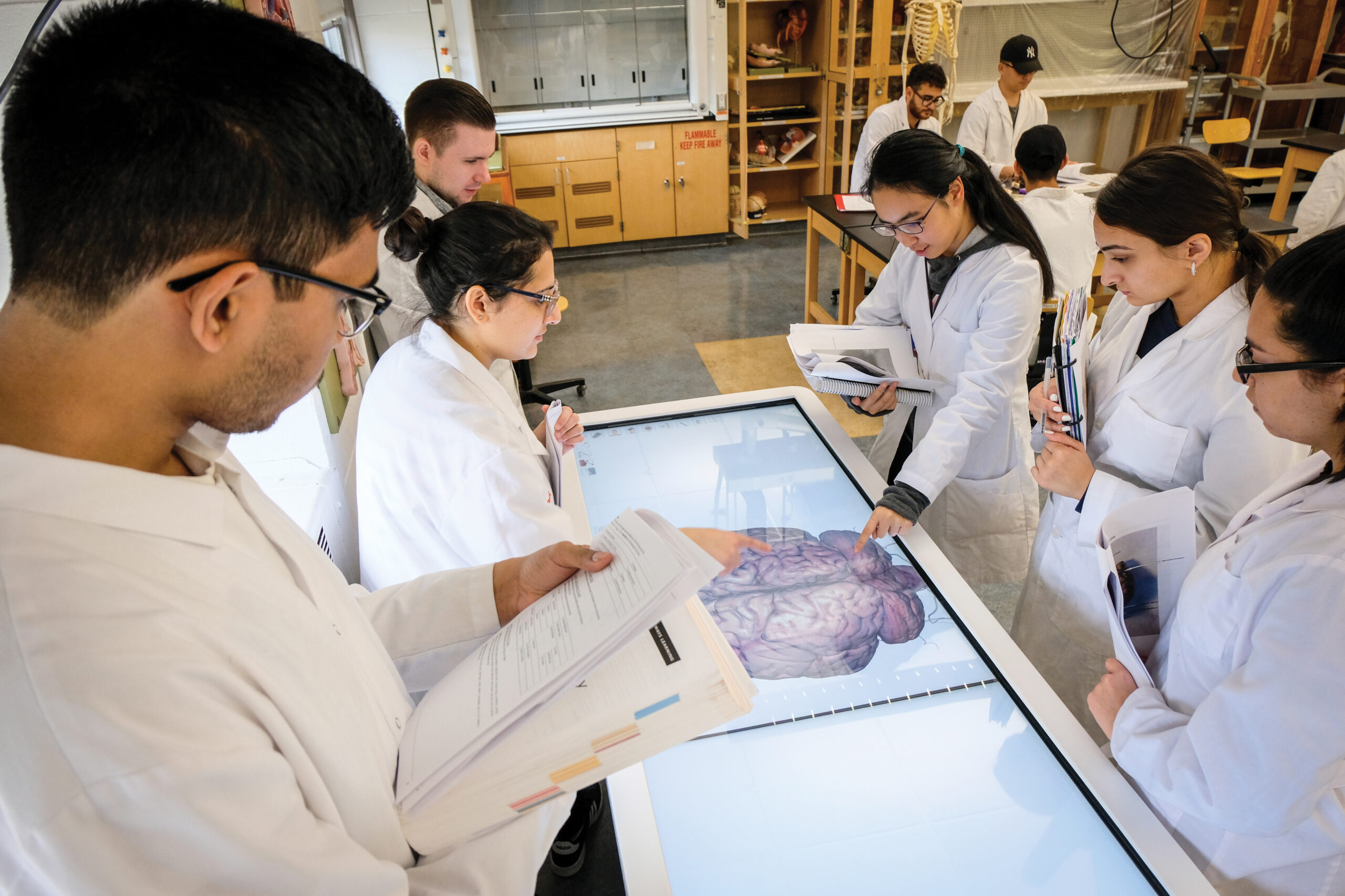In 2018, the Journal for the Education of the Gifted released a special issue on gifted college students and undergraduate honors programming. The issue included an article authored by Angie Miller of NSSE and Amber Dumford of the University of South Florida that examined the relationship between honors participation and student engagement.
Honors colleges and programs are meant to provide an academically rigorous experience, often for high ability students previously identified as "gifted." Most honors programs include more advanced general education courses, usually with smaller class sizes. Honors courses often serve as prerequisites to more demanding courses. In addition to advanced coursework, honors programs usually require independent research elements, frequently in conjunction with other high-impact practices like internships, service learning, and study abroad. While honors programs’ curricular structure is well known, it is less clear if these requirements and opportunities correspond with higher student engagement for honors students.
This study explores how participation in an honors college influenced student engagement among undergraduates. It utilized 2015 NSSE data to compare various aspects of engagement between honors college and general education students. Responses from 1,339 honors college students and 7,191 general education students across 15 different universities were used to create hierarchical linear models (HLM) with the 10 NSSE Engagement Indicators selected as outcome variables. After controlling for several student and institutional characteristics known to influence engagement, the analyses suggest that participation in an honors college is a positive predictor of several aspects of student engagement. For first-year students, these included reflective and integrative learning, the use of learning strategies, collaborative learning, diverse discussions, student-faculty interaction, and quality of interactions. In contrast, honors college involvement had less of an impact for seniors, with student-faculty interaction as the only positive significant relationship. There was a slight range in the magnitude of these various effects, meaning some were relatively small (such as quality of interaction) while others were more moderate (such as student-faculty interaction for first-years). For a more detailed explanation of NSSE effect sizes, check out this page.
HLM Results Summary
| First-year | Senior | |||
| Engagement Indicator | Coefficient | Sig. | Coefficient | Sig. |
| Higher-Order Learning | .081 | -.033 | ||
| Reflective & Integrative Learning | .193 | *** | .023 | |
| Quantitative Reasoning | .045 | .042 | ||
| Learning Strategies | .147 | ** | -.014 | |
| Collaborative Learning | .158 | *** | -.022 | |
| Discussions with Diverse Others | .102 | * | .028 | |
| Student-Faculty Interaction | .266 | *** | .161 | *** |
| Effective Teaching Practices | .045 | -.049 | ||
| Quality of Interactions | .091 | * | .018 | |
| Supportive Environment | .037 | -.002 | ||
*p<.05, **p<.01, ***p<.001
There are several potential reasons for these patterns of results. For first-year honors students, there are often special sections of required core courses reserved for them. These classes are usually smaller, taught by highly-qualified faculty, and frequently have an interdisciplinary or thematic component, which sets them apart from the "regular" versions of these courses. The increased student-faculty interaction observed for seniors might be due to the curricular requirement for an honors thesis or capstone experience at many institutions. These types of projects are typically completed with the guidance of a faculty advisor.
The strengths and weaknesses revealed in this study can help to inform curricular and programming enhancements for honors programs and colleges. Furthermore, these results can help prospective high ability college students and their parents and guidance counselors considering honors participation. Students should not just simply confirm if a university has an honors college available. Instead, we recommend some more detailed research on the curriculum and format of honors courses, living options, and additional graduation requirements. All of this information contributes to a more informed decision about a potentially great educational experience!
Miller, A. L., & Dumford, A. D. (2018). Do high achieving students benefit from honors college participation? A look at student engagement for first-year students and seniors. Journal for the Education of the Gifted, 41(3), 217-241. https://doi.org/10.1177/0162353218781753


